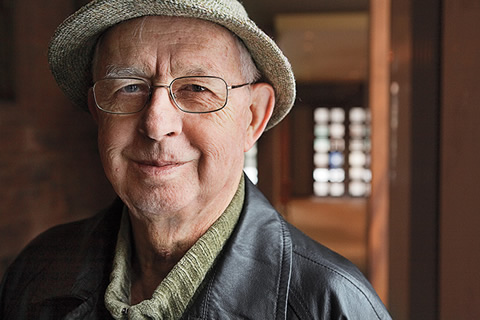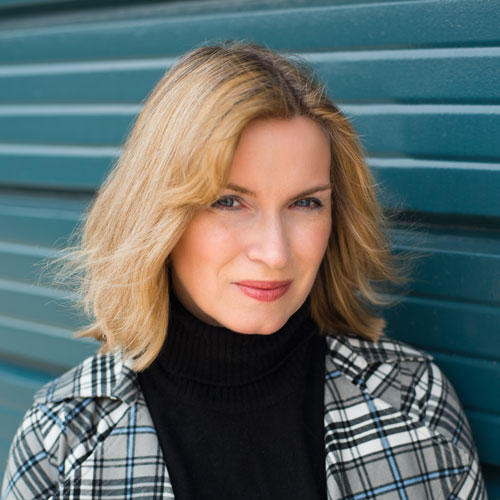Historian Thomas Carlyle nicknamed economics “the dismal science” – but for the past 48 years, Professor Michael Hare has made it his mission to disprove that. With nearly half a century of teaching under his belt, Hare is one of the longest-serving instructors in the history of the university. As befits a meticulous social scientist, he’s kept records on how many students he’s taught: an astounding 32,638, to be exact, spread out over 269 courses. Despite his experience, he still gets nervous. “If I’m delivering a good lecture I usually get a little excited beforehand. Students probably wouldn’t know that, but I still do.”
Hare has seen many changes in campus life since he first came to the university, fresh from graduate work at the Massachusetts Institute of Technology. “The students of the early 1960s were very meek and hardly challenged the instructor,” he says. As the decade progressed, students became more inquisitive and confrontational, only to change again in the ’70s: “Students reverted back to being very meek.”
Class sizes in the economics department increased substantially after 1980; Hare says the advent of 400-student classes has definitely made teaching more challenging. On the positive side, he has noted increasing interest in economic issues. Fittingly, one of the signature courses he’s developed – ECO105 – is geared specifically to non-specialists. It’s a rare blend of policy and theory that addresses some of the most important issues of our time: productivity, poverty reduction in the global south, the debt crisis in Latin America, sustainable development and other environmental concerns.
Indeed, Hare’s wide range of extracurricular activities has reflected, and even presaged, events of economic importance. Back in the 1970s, before recycling became commonplace, he acted as a waste-management consultant, with specific expertise in beverage containers. More recently, Hare has acted as a tourism consultant to the government of Barbados, a destination he frequently visited with his late wife and treasured helpmate, Marion. “She was my partner and supporter, and a mentor to our three children. Without her I wouldn’t have been able to teach for as long as I have.”
Although he formally retired from the university 12 years ago, Hare plans to keep teaching on a part-time basis, at least until he reaches the 50-year mark. (He also plans to write a book on the future of capitalism.) Hare, 78, takes pride in the applause that often concludes his lectures; the former students who stop him in the street to thank him; the many young people he’s taught who’ve gone on to achieve success (including U of T president David Naylor, who studied under him 37 years ago). “Education is important,” he says. “Nobody fails at university. An academic failure may occur, but frontiers have been opened to you. You’ll never be the same again.”
Recent Posts
People Worry That AI Will Replace Workers. But It Could Make Some More Productive
These scholars say artificial intelligence could help reduce income inequality
A Sentinel for Global Health
AI is promising a better – and faster – way to monitor the world for emerging medical threats
The Age of Deception
AI is generating a disinformation arms race. The window to stop it may be closing






4 Responses to “ A Capital Achievement ”
I was delighted to pick up the spring issue of U of T Magazine and see the face of a man with whom I have had no contact for some 55 years: Michael Hare.
It was my privilege to be acquainted with Mike from 1951 to 1955, while we were enrolled in commerce and finance at U of T. We spent much of our time in the bowels of what was formerly called the Economics Building, on Bloor Street. We last spoke at a classmate’s wedding that we attended together shortly after our graduation.
My clearest memories of Mike are his attempts to explain economic theory to me in our graduating year. I must say that he was not entirely successful, but I did manage to graduate. I ascertained from the article that he has refined his teaching skills over the years, imparting his vast knowledge to more than 32,000 students.
I can only hope that he and I will meet at least once more, with our remaining classmates, perhaps, at our 60th class reunion in 2015!
Morton (Morty) Eisen
BComm 1955
While enrolled in the Ph.D. program, I had the pleasure of serving as Professor Hare's teaching assistant for his introductory courses in economics in 1970-71 and 1971-72. It was an excellent experience, enhanced by his consideration, warmth and understanding.
I took professor Hare's Eco 100 class in my first year at U of T and from there was inspired to take all my upper level economic courses with him, including ECO324 and ECO360. The classes were always interesting, as Professor Hare explained them really well and emphasized the importance of technological change and innovation.
Thanks for this article. Prof. Hare was my first professor in university, and I've been in love with economics ever since!